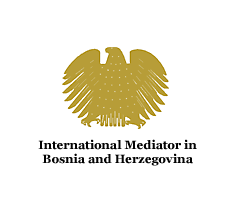TRIP REPORT 5/99 - 6-12 DECEMBER 1999
IntroductionGiven the developments in Croatia and BaH, such as elections in both states and the recent decisions of the High Representative to remove 22 officials, there was a need to assess the possibilities of the international community to further their efforts, particularly in BaH. The developments in Croatia will effect BaH in the coming year through the impact of the coming elections, the return of Serbs and the economy of Croatia. It is critical to understand that progress in any one of these areas is closely tied to progress in the other two areas. An economically stable Croatia will help not only the democratic process in that country but also the climate for Serbs to return. Conversely, stable democratic and return processes will help the economy by making Croatia more attractive to the international community, especially investors.
Concerning Bosnia and Herzegovina, it is still evident that there is much work to be done by the International Mediator. This trip produced agreements and commitments to mediation as a vehicle for resolving problems, particularly in Republika Srpska where the Mediator was able, for the first time, to convince the authorities in Banja Luka to move forward on the issues of property rights and returns. However, there was also an awareness that in some cases participants have not taken serious mediation efforts and that consequences will be drawn for not fulfilling their commitments.
A particular case in question was the follow-up assessment to the Travnik Declaration of April 1999. While much progress was achieved in other areas, no progress was achieved on the very sensitive issue of education. The withdrawal of the Mediator's efforts in this case combined with the recent removal of obstructionist politicians by the High Representative are a strong signal to local authorities that their positions require ownership and stewardship of the peace process. Moreover, there are consequences to their actions. Mediation is a serious effort to give local authorities the possibility of solving their own problems without intervention by the OHR. However, not fulfilling commitments, which they themselves agreed to, is only delaying their own inevitable demise and betraying their own people. Nevertheless, the majority of the trip demonstrated that despite the obstructionists that still remain, there are a great many other actors which are pragmatic and willing to find creative solutions to the problems of the peoples of BaH.
The trip started in Zagreb, Republic of Croatia with an information visit. It was followed by a mediation in Banja Luka, a follow-up on the Central Bosnia Canton (Travnik Declaration) and an assessment of the state of returns between Busovaca and Zenica.
In Zagreb Dr. Schwarz-Schilling and his delegation met with National Bank Governor Marko Skreb, IMF Resident Representative Gary O'Callaghan, Finnish Ambassador Osmo Lipponen, US Ambassador William Montgomery, German Ambassador Volker Haak, Archbishop Josip Bozanic, Prime Minister Zlatko Matesa, Deputy MFA Ivo Senader, OSCE HOM Bernard Poncet and SDP President Ivica Racan.
The Mediator met in Banja Luka with Speaker of the RS Assembly Petar Djokic, Bishop Franjo Komarica, RS Vice-President Mirko Sarovic, RS Deputy Minister for Refugees Markovic and his Assistant Minister Petar Djodan. In Sarajevo he visited Federation Prime Minister Edhem Bicakcic, High Representative Wolfgang Petritsch, Head of the OHR AFU Franz Brünner, German Ambassador Hans-Jochen Peters, OSCE HOM Robert Barry and HNV President Ivo Komsic.
The delegation consisted of the International Mediator, Dr. Christian Schwarz-Schilling, Mr. Dieter Wolkewitz (Executive Representative), Mr. Gerald Knaus (Political Advisor and Sarajevo Representative), Mr. Juan Diaz (Political Analyst), Ms. Amela Curkovic (Interpreter). During his visits, the Mediator was accompanied by Mr. Ralph Paasch (Frankfurter Rundschau), Mr. Oliver Hoischen (Frankfurter Allgemeine), Mr. Goran Magas, the Advisor to the Federation Vice-President and Special Envoy for Drvar, Mr. Salko Beba, First Secretary of the Federation Vice-President, Ms. Mirsada Jahic, the Co-ordinator of the Task Force Group in the Federation Prime Minister's Cabinet for the Support of the Mediator's Activities and Mrs. Sabira Jahic, Assistant to the Federation Minister for Refugees.
The delegation would like to express its special gratitude to OSCE Operations for its logistical support; OSCE officers in Zagreb, Sarajevo, Banja Luka and Travnik; as well as OHR Sarajevo and Travnik and all RRTF staff for providing input and organisational support. During the trip the delegation was assisted also by ECMM, IPTF,OHR, SFOR, UNHCR and the Federation Ombudsmen.

